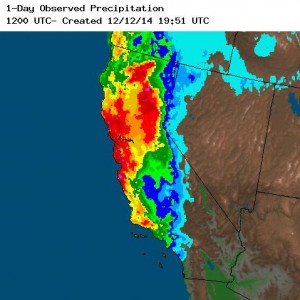The Stream, December 12: ‘Virtual Water’ Responsible for Roman Empire Fall
The Global Rundown |
Over-reliance on traded grain and ‘virtual water’ is apparently what led to the rise and demise of the Roman Empire. Meanwhile, Saudi Arabia has recently announced that it will rely completely on imported grain by 2016. Facing inadequate public supply, desperate citizens of Yemen’s capital have taken to replacing their water meters with pumps. The government of Cameroon has recently hired an Indian company to complete a water supply project for its capital. Native American tribes and the State of Montana have recently come to an agreement about water. Finally, the United States Government has set up easy access to a veritable wealth of environmental data.
“We’re confronted with a very similar scenario today. Virtual water trade has enabled rapid population growth and urbanisation since the beginning of the industrial revolution. However, as we move closer to the limits of the planet’s resources, our vulnerability to poor yields arising from climate change increases.” – Brian Dermody, environmental scientist from Utrecht University, on water and the Roman Empire. (European Geosciences Union)
By The Numbers |
100% Proportion of Saudi Arabia’s wheat to come from overseas, starting in 2016.The Kingdom has announced that it plans to completely cease its own wheat farming, and rely solely on imports. Though wheat production in Saudi Arabia peaked at 2 million tons in 2008, it has quickly become apparent that the country’s water resources are in no way able to support this, and the Saudi wheat harvest has been reduced by a rate of 12.5% per year ever since. Zawya
$US 93 Million Cost of a new potable water-supply system which will be built near the capital city of Cameroon. An Indian company has been contracted to complete the project, which will supply running water to the city as well as water in 20 liter containers to areas lacking the proper infrastructure. Bloomberg News
Science, Studies, And Reports |
A new study published in Hydrology and Earth System Sciences shows the relationship between water and the rise and fall of the Roman Empire. The Romans were able to thrive in part through their ability to trade grain (and with it, ‘virtual water’). However, this initially reliable supply of food drew far too many mouths into urban centers, and the system was unable to withstand inevitable climatic variations and decreases in grain production. European Geosciences Union
U.S. Secretary of the Interior Sally Jewell announced on Tuesday the release of two massive collections of data through the federal Climate Data Initiative program. Hundreds of datasets from agencies such as NOAA, NASA and the USGS have been consolidated into two publicly accessible data hubs with the themes of “Ecosystem Vulnerability” and “Water”. The data are being provided in the hopes of improving resiliency to climate change. U.S. Department of the Interior
On The Radar |
Some residents of Yemen’s capital city have taken to stealing water by temporarily removing their water meters and replacing them with pumps long enough to fill their own tanks. Water shortages have forced the government to cut back on water supply to citizens, and a government official admits that while water theft is common, there is not much that can be done about it. The Yemen Times
The Confederated Salish and Kootenai Tribes of Montana have come to an agreement with the Montana State Government regarding shared water resources. The compact seeks to provide enough water for irrigation while still maintaining historic uses of water on the Flathead Indian Reservation. The Montana Standard
is both a scientist and a journalist, she holds an MS in Environmental Engineering from Michigan Technological University, and she brings proficiency in ESRI’s ArcGIS mapping software.






Leave a Reply
Want to join the discussion?Feel free to contribute!